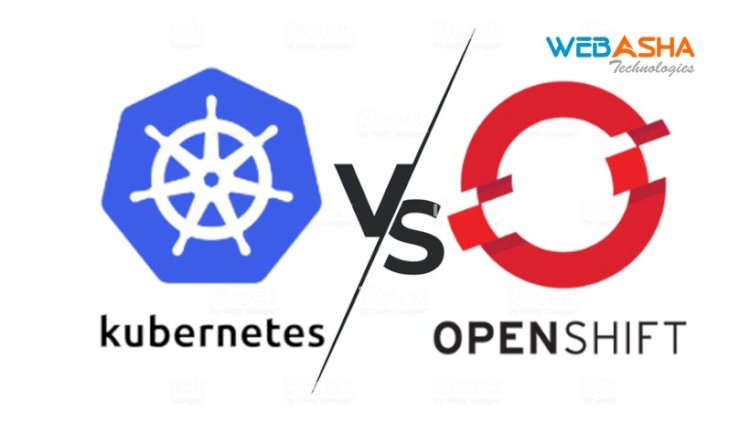OpenShift vs Kubernetes | Comparing the Two Popular Container Management Platforms
OpenShift and Kubernetes are both powerful platforms for managing containerized applications, but they are suited for different use cases. Learn more about the key differences and which platform is best for your needs in this comparison guide.

OpenShift and Kubernetes are both popular open-source platforms for managing containerized applications. They are both used for automating the deployment, scaling, and management of containerized applications, but they have some key differences.
What is Openshift?
OpenShift, developed by Red Hat, is a platform that is built on top of Kubernetes. It adds additional features and functionality to Kubernetes, such as a built-in container registry, support for multiple languages and frameworks, and a web-based console for managing applications. OpenShift also includes a number of pre-built "cartridges" that make it easy to deploy popular applications, such as WordPress and MongoDB.
What is Kubernetes?
Kubernetes, on the other hand, is a more basic platform for managing containerized applications. It provides the basic functionality for deploying, scaling, and managing containerized applications, but it does not include many of the additional features and functionality that OpenShift provides. Kubernetes is more of a "bare-metal" platform, which makes it more suitable for users who need a more customized and flexible solution.
One of the main advantages of OpenShift is its ease of use. The web-based console and pre-built cartridges make it easy for users to deploy and manage applications, even if they have limited experience with containerization. OpenShift also includes a number of security features, such as role-based access control and automatic patching, that make it more secure than Kubernetes.
Kubernetes, on the other hand, is more flexible and customizable than OpenShift. It provides a more extensive set of APIs that can be used to automate deployment, scaling, and management tasks. Kubernetes also supports a wide range of network and storage solutions, which makes it more suitable for users who need a more complex and powerful solution.
Support
Another advantage of Kubernetes is its wide range of support. Kubernetes is supported by many different vendors and cloud providers, which makes it easy to deploy and manage applications in a variety of environments. OpenShift, on the other hand, is primarily supported by Red Hat and may not be as widely supported as Kubernetes.
Scalability
In terms of scalability, Kubernetes has the edge over OpenShift. Kubernetes can handle more nodes and pods, and has better performance when scaling. Kubernetes is also more suitable for large-scale deployments, as it can handle thousands of nodes and millions of pods.
In conclusion, both OpenShift and Kubernetes are powerful platforms for managing containerized applications, but they are suited for different use cases. OpenShift is more suitable for users who need an easy-to-use platform with a lot of pre-built features and functionality, while Kubernetes is more suitable for users who need a more customizable and flexible solution. If you are looking for a platform that is easy to use and has a lot of built-in features, then OpenShift is the right choice. However, if you are looking for a more customizable and flexible platform, then Kubernetes is the right choice.











![Top 10 Ethical Hackers in the World [2025]](https://www.webasha.com/blog/uploads/images/202408/image_100x75_66c2f983c207b.webp)

![[2025] Top 100+ VAPT Interview Questions and Answers](https://www.webasha.com/blog/uploads/images/image_100x75_6512b1e4b64f7.jpg)









